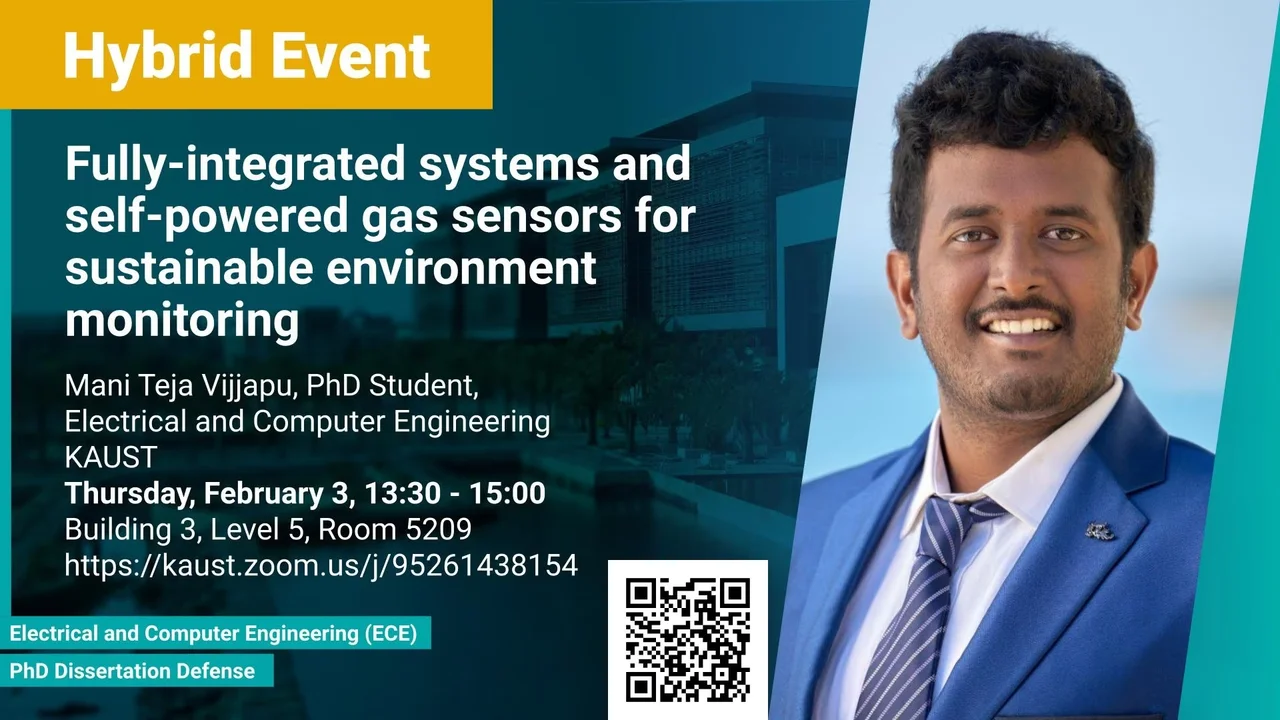
Fully-integrated systems and self-powered gas sensors for sustainable environment monitoring
Mobile devices for the personalized detection of health and environmental hazards are becoming the basis for futuristic sensing technologies. In recent decades, air and environmental pollution levels have risen globally. Therefore, environmental protection must be strengthened by developing sensors that detect pollutants. The monitoring of these pollutants with high spatial coverage requires inexpensive electronic gas sensors and self-sustainable sensing systems that can be deployed everywhere. This dissertation reports on technological developments to provide solutions for inexpensive, compact, power-efficient, and easily deployable toxic gas sensors and integrated systems using semiconducting metal-oxide thin-film transistors (TFTs).
Overview
Abstract
Mobile devices for the personalized detection of health and environmental hazards are becoming the basis for futuristic sensing technologies. In recent decades, air and environmental pollution levels have risen globally. Therefore, environmental protection must be strengthened by developing sensors that detect pollutants. The monitoring of these pollutants with high spatial coverage requires inexpensive electronic gas sensors and self-sustainable sensing systems that can be deployed everywhere. This dissertation reports on technological developments to provide solutions for inexpensive, compact, power-efficient, and easily deployable toxic gas sensors and integrated systems using semiconducting metal-oxide thin-film transistors (TFTs).
The first part of the dissertation introduces the fabrication and characterization of an amorphous indium gallium zinc oxide (IGZO) TFT as a toxic gas sensor. In contrast to existing metal-oxide gas sensors, which are active either with light activation or at high temperature, the developed IGZO TFT sensors are operable at room temperature and require only visible light activation to revive them after exposure to NO2. IGZO TFT sensors exhibited remarkable selectivity and sensitivity to low concentrations of nitrogen dioxide (NO2).
The second part of the dissertation introduces the design and realization of the IGZO-based fully integrated gas detectors. Unlike existing gas-sensing systems, which have discrete hardware for signal conditioning, read-out, and data acquisition, the developed integrated detectors constitute these modules integrated using IGZO TFT technology. The integrated detectors detect ambient NO2 gas and generate a digital output that is proportional to the ambient gas concentrations. Two types of integrated gas detectors were developed that differ in their mode of operation and circuitry design. These detectors are scalable and pave the way for portable systems to realize various gas-sensing applications, including smart cities and sustainable ecosystems.
The success of personalized monitoring devices relies on the following factors: minimum power consumption, selectivity, and stability under extreme conditions that determine overall performance. One of the best solutions to minimize power consumption in these devices is to have a complementary energy-harvesting feature. Hence, the dissertation concludes with the design of self-powered sensors, which are IGZO sensors with self-powering capabilities. Self-powered sensors are p-n heterojunction sensors, developed using IGZO and hybrid-perovskites.
Brief Biography
Mani Teja did his bachelors in Electronics and communications from Jawaharlal Technological University Anantapur, India in the year 2013. He worked as a research associate for Physical Research Laboratory, India for couple of years. He further continued to work as a research associate at IIT Madras, India. Later he pursued his masters in Solid state electronic devices from National Chiao-Tung University (NCTU), Taiwan and graduated in 2018. He decided to pursue his passion being a PhD scholar at Sensors lab, KAUST from January 2018. His research interests include the fabrication and characterization of semiconducting devices and integrated systems for chemical and gas sensing applications. He was the recipient of the CTCI Scholarship-2017 for international students in Taiwan.
